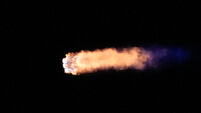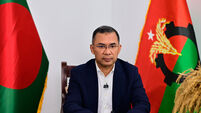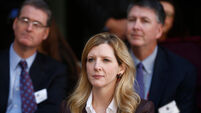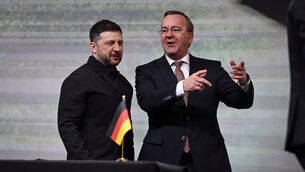Soldiers killed in rocket attack
Hezbollah fired an enormous barrage of rockets at towns across northern Israel today, killing 10 people in the worst attack on Israel since the violence began on July 12, rescue services said.
Israel’s Channel Two television reported that nine of those killed were reserve soldiers.














